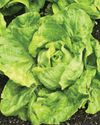
During the growing season, many gardeners find themselves with a bounty of fresh herbs. You can’t always expect the herbs you need for good health to be in season when you need them, so you’ll want to find clever ways to keep them so you can make use of their medicinal powers all year long. While drying and freezing are always an option, there are plenty of other creative ways to capture the flavor and usefulness of those herbs until their season to flourish comes around once again.
HERBAL VINEGARS
To make herbal vinegar, fill a jar 1⁄2 to 3⁄4 full with fresh herbs. Pour vinegar over the plant matter until the jar is filled. Cover and tuck inside a cabinet or pantry for about four weeks, shaking occasionally. In order to prevent the acidity of the vinegar from corroding metal lids, use a piece of plastic wrap between the lid and jar, or use a plastic cap instead. Strain and pour the finished vinegar into a clean, sterile bottle. You can store herbal vinegars in a cool, dark place for up to a year.
USE IT Herbal vinegars find use both in the kitchen and around the house.
Salad Dressing or Marinade:
Culinary vinegar can be made with apple-cider or white-wine vinegar infused with any of the following herbs: basil, rosemary, dill, thyme, tarragon, nasturtium, chives, pineapple sage, lemon balm or mint. Mix and match various herbs with other additives, such as lemon zest or berries, to create unique flavor profiles, or add in your favorite medicinals for an extra health kick.
All-Purpose Cleaner:
For household purposes, use regular white vinegar and make large batches at a time. Use lavender- infused vinegar in your laundry as a natural alternative to fabric softener, use lemon balm- or lemon-verbena-infused vinegar as an inexpensive floor cleaner, or use rosemary-thyme vinegar to disinfect kitchen surfaces.
HERBAL SYRUPS
This story is from the {{IssueName}} edition of {{MagazineName}}.
Start your 7-day Magzter GOLD free trial to access thousands of curated premium stories, and 9,000+ magazines and newspapers.
Already a subscriber ? Sign In
This story is from the {{IssueName}} edition of {{MagazineName}}.
Start your 7-day Magzter GOLD free trial to access thousands of curated premium stories, and 9,000+ magazines and newspapers.
Already a subscriber? Sign In

The RISE of Opportunist WEEDS
Be prepared to see increasing changes in weeds we fight, such as poison hemlock and poison ivy, and in the crops we grow.

LIVESTOCK Health
Prepare yourself for how to spot symptoms of illness in your farm animals so that you can get them help before it's too late.

CUT FLOWER Farming
If you're considering growing flowers for sale, brush up on these five key things to know before diving in.

WINTER Survival
Keep your land, animals and yourself in good shape this winter with this helpful advice.

COVERAGE CONCERNS
Avoid common insurance mistakes for rural and hobby farm businesses.

FARMER'S GUIDE Berries
Set the stage for tasty strawberries, blueberries and brambles with these soil-boosting garden tips.

Preconditioning CALVES
Follow our step-by-step guide to get more money for your calves.

Soil Conservation
Often, outside of having a specific problem that needs to be addressed, soil conservation isn't something every farmer readily thinks about. Yet conserving the soil should be at or near the top of every farmer owner or manager's list of concerns because absent the prevention of soil erosion, we have the opportunity for another dust bowl.

Year-Round Lettuce & Salad Mixes
It's easy to think of salad greens as just a spring- or fall-garden crop, but it's possible to enjoy freshly harvested lettuces, mustards and more from your own garden year-round.

Barn Improvements
Days are never long enough for a farmer. From dawn to well into the night, tasks arise that often require immediate action. Having to search for tools or equipment is an enormous time waster and incredibly frustrating when you can't find what you need, especially when you know you have it.